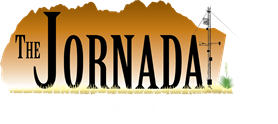| Title | Geographic searching for ecological studies: A new frontier |
| Publication Type | Journal Article |
| Year of Publication | 2013 |
| Authors | Karl JW, Gillan JK, Herrick JE |
| Journal | Trends in Ecology and Evolution |
| Volume | 28 |
| Issue | 7 |
| Start Page | 383 |
| Pagination | 383-384 |
| Date Published | 07/2013 |
| Type of Article | Review Article |
| Accession Number | JRN53967 |
| ARIS Log Number | 296840 |
| Abstract | Important ecological knowledge contained in published literature is often overlooked by researchers, resource managers, and policymakers in part because most literature search tools are thematically focused and do not explicitly consider the geographic location of the research. Searching for ecological literature thematically and geographically would improve the ease of accessibility of potentially relevant research findings that could promote syntheses and meta-analyses, provide mechanistic understanding to environmental patterns, facilitate evaluations of bias in ecological knowledge, and limit redundancy in conducting new studies. New tools are beginning to enable geographic literature searching. For example, JournalMap (http://www.journalmap.org) is a simple geographic search engine for ecological literature based on study area descriptions. The online data repository Pangaea (http://www.pangaea.de) effectively maps journal articles by the locations of their data. The GLOBE project (http://globe.umbc.edu) supports searching for, and synthesis of, user-contributed georeferenced studies for land-change science. Additionally, several journals published by Elsevier offer the ability to include supplemental geographic data and interactive maps. All these efforts, however, suffer from the same shortcomings: they do not contain enough content to realize the potential of geographic literature searching, contributions are either voluntary or limited to specific groups, and most importantly, these efforts operate independently of each other. Consequently, the lack of accessible and searchable georeferenced content is currently limiting the potential of geographic literature searching. Achieving a meaningful spatial representation of ecological knowledge will require changing how and what information is published in the future, as well as confronting the challenge of georeferencing past studies. In the short term, two simple behaviors are imperative: (i) authors should take the initiative to include geographic coordinates and descriptive study area information in their study area descriptions; and (ii) journal editorial boards and publishers should begin discussions on how broad-scale geographic searching can become standard practice in scientific knowledge discovery. |
| URL | /files/bibliography/13-039.pdf |
| DOI | 10.1016/j.tree.2013.05.001 |


